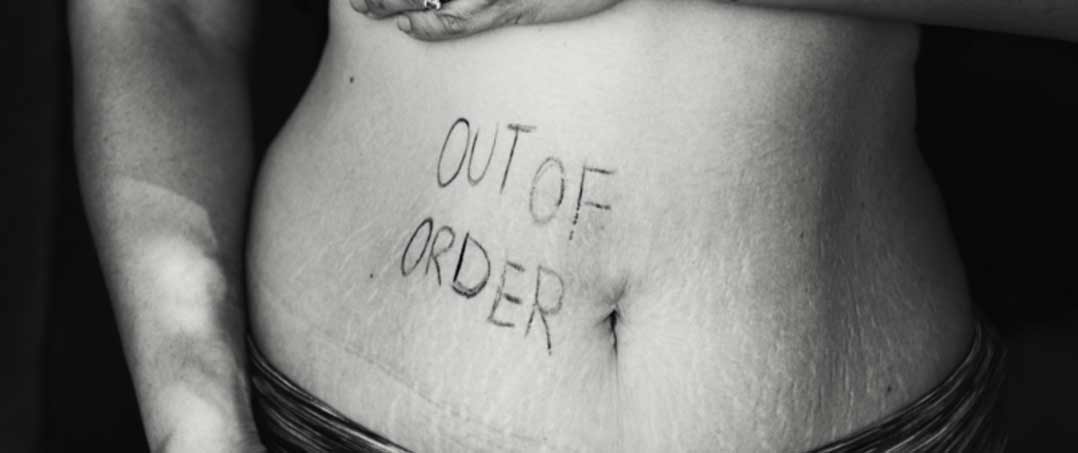
by Emma G | Feb 18, 2019 | Ageing
An inevitable part of life, though one we can manage and aim to move through with strength, mobility and quality health.
Nutrition
The 80/20 rule is a sensible way of looking at the way you eat. Consume highly nutritious foods 80% of the time and those less nutritious foods that you love 20% of the time. There is really no need to go on crazy diets, aim to eat moderately and include a little bit of indulgence along the way. Find what works for you.
Say if you have 3 meals and 2 snacks every day, that would leave 7 of the eating choices, a mix of snacks and meals, for that week for foods that you enjoy though aren’t quite as nutritious. Not bad right?
Movement
There are so many benefits of movement, it lowers risk of many diseases, alleviates depression/anxiety and slows down ageing. Movement connects you with others, it’s fun, energises us, improves posture and increases confidence. Aim to try new exercises, set new challenges and find ways you like to move.
Play and laugh
Have fun, laugh, be silly, climb trees, roll in the grass, whatever activity that makes you feel good. Many activities that make us laugh are connected with moving our body. A positive outlook on life comes with a plethora of health benefits.
“We don’t stop playing because we grow old; we grow old because we stop playing.”
Stuart Brown, MD
Sleep
Achieving sleep is not easy for all of us, though aim to prioritise your sleep where you can. If it proves too much of a challenge to get enough sleep at night, you could try micro naps or “meditation” throughout the day. Meditation comes in many forms, so find what works for you.
“Sleep is the single most effective thing we can do to reset our brain and body health each day — Mother Nature’s best effort yet at contra-death.”
Matthew Walker, Why We Sleep
Move, laugh, eat and sleep! Doesn’t sound too challenging when put like that!

by Emma G | Feb 13, 2019 | Clients
91% would recommend services to a friend or colleague
83% were very satisfied with services, everyone else was satisfied
The buzz words that were used when asked to describe Total Health services were reliable, high quality, useful, unique and value for money.
Services met everyone’s needs to either extremely well or to a very well standard.
Everyone rated service quality as very high or high with Emma’s responsiveness to questions/concerns as extremely responsive. I pride myself in being available for my clients throughout the week, I make this clear that my services go beyond actual session time.
I was overwhelmed with the results, surveying is a business tool I have been using since I started and it’s a simple way to track client engagement.
Some additional loveliness that was left for me in the survey.
“Variety is a big plus for me in terms of the exercises we do. Love the total approach and focus on the person’s issues/weakness’, correct form and easy going manner.”
“Your level of genuine concern and respect toward my body and mind has been amazing. I have felt pushed but not stressed so thank you.”
“The best thing I have ever done for my overall health was booking my first session with Emma two and a half years ago.”
“Great service all around. Keep doing what you are doing.”
A massive thanks to all my clients past and present, if you would like to discuss your specific health requirements please get in touch.

by Emma G | Apr 1, 2015 | Nutrition
“Fat from food does not equal body fat”
Fat protects our inner organs and allows oestrogen to function properly, which regulates menstrual cycles, protects fertility and also preserves our bones as we age. Fatty acids are necessary for our immune system.
Dietary fats
- It is an energy source – it’s the most energy dense macronutrient
- It helps manufacture and balance hormones
- It forms our cell membranes
- It forms our brains and nervous systems
- It helps transport the fat-soluble vitamins A, D, E and K
- It provides two essential fatty acids that the body can’t make, omega-6 and omega-3
A fat deficiency could cause cognitive development issues, vision impairment, skin problems, depression or other negative feelings.
Trans fats are the main problem, also known as hydrogenated oils, we find these in snack type foods, they can cause many negative health issues and have no nutritional value.
Saturated fats are not all bad, some may even be good for us while others have a neutral effect. Research shows that some saturated fats can balance cholesterol levels and lower inflammation. Stick with good quality grass-fed beef, chicken, eggs, dairy and dark chocolate.
Unsaturated fats (healthiest fats) can be broken down into Omega 3 fatty acids found in salmon, mackerel and walnuts, are an excellent natural anti inflammatory, assist with menstrual pains and balance out omega 6 fatty acids. Some research suggests that Omega 6 fatty acids may cause some inflammation. Omega 6 fatty acids are found in sunflower oil and soybean oil.
Aim for about 30% of daily food intake being made up from quality fats.
Examples of quality fats
- olive oil
- rice bran oil
- nut butters/oils
- avocado/oils
- fish/oils
- nuts and seeds
- coconut
- egg yolks
Any food group eaten to excess, be it carbs, proteins and/or fats can lead to weight gain and its many complications.
Check out the back of food labels for more information. You don’t need to count everything obsessively, however take an interest and be aware of what you are consuming. Choose foods with a lower saturated fat levels.
**Data taken from 3 sources Dr Stacy Sims Roar, Precision Nutrition and Healthline. I personally have no experience with Ketogenic diets so have left this out of the information. I am not a nutritionist, I’m sharing the information of others and from my own personal experience.

by Emma G | Apr 1, 2015 | Womens Health
Several of my female clients ask me about cellulite so I have done some research and put together some information for you. Most women post puberty have some degree of cellulite, it affects 90% of women and 10% of men, it is totally NORMAL. Lifestyle factors, hormones, genetics, race and body shape all contribute towards the chances of having it.
If you do have cellulite you can’t get rid of it completely (sorry ladies), however you may
be able to reduce its appearance with lifestyle tweaks.
Cellulite consists of several changes within your skin, coupled with circulation issues and changes within the fat cells themselves. For women once we hit puberty, our bodies are very responsive to our hormones. So blame our hormones! Estrogen, insulin and prolactin all play their part in the development of cellulite.
It’s the image and feel of cellulite which causes ladies distress.

What can we do to reduce cellulite?
If you sit down all day you need to move about more and increase circulation, as areas prone to cellulite already have decreased blood flow. Get moving team, I’m not only talking exercise I’m talking movement. Cleaning, gardening, walking, cycling, playing with your kids, cooking; all of these activities count as movement. Fill your day with movement. We want to “decrease your body’s insulin levels and make your muscle cells more receptive to burning up carbs and fats for energy.” As well as daily movement we want a mix of cardio and full body strength training.
And the next one, you guessed it, is dietary tweaks. A good start is to minimise toxins from what we consume. Think sugar/simple carbs, booze, cigarettes, caffeine, high sodium foods and nasty fats. We are looking for a diet consisting of quality carbohydrates (grains, starchy veg and all the veg). protein sources, quality fats and legumes. We are looking for a colourful diet to provide you with all the antioxidants, vitamins and minerals your body loves. Hydrate yourself with mostly water.
Massage and dry brushing may also be beneficial to reduce its appearance. There are also various beauty treatments available, but their results are questionable, they may improve cellulite for a short time.
I was listening to a podcast the other day, from which I took the message that as women and men, we need to love and appreciate our bodies at every stage of our lives, that each new decade brings challenges, and allows us a new opportunity to embrace our bodies. Acceptance and pride will help you on this journey, really try hard to focus on all your many positives. I’ve been working hard at this, it’s not easy, however its vital for a life free of constant self-criticism, of over exercising and disordered eating.
While you may be able to reduce your cellulite you can’t get rid of it so its time to embrace it ladies and let it go. Focus that wasted energy on something awesome.

by Emma G | Apr 1, 2015 | Gut Health
I have been reading up on gut health and experimenting with products. I am working with a client with a plethora of gut problems too, I’m picking up knowledge from their situation.
I have recently finished reading the text Dr.Jensen’s Guide to Better Bowel Care, a fascinating read. Dr Jensen started at as a chiropractor and became increasingly dissatisfied. He became aware that his clients needed more than spinal adjustments, that they needed adjustments in their ways of living. He opened a sanitarium and began to help people find the path to true health.
He found that people in the West suffer from far too many gastrointestinal (GI) problems. He truly believes that all disease stems from our gut health. I am no expert however his findings make a lot of sense to me
” The body is an organisation. It digests food, processes oxygen, and undertakes numerous other activities. Every organ contributes something to the body and its activities. As human beings, we need every cell, tissue, and organ that was put into our body. The body is the instrument through which we live, and we should treat it with respect. We cannot take our body, so wonderfully put together, and expect it to function properly if we violate all the natural laws that are necessary for it to be well. ”
Dr Jensen has dietary laws that he believes everyone should follow, these are his beliefs.
- Opt for natural, whole and pure foods. Whole foods build a whole body.
- Eat foods in correct proportions, heavy on the veggies.
- Have an 80/20 split of alkaline (fruit/veg) and acidic foods. (starches/proteins)
- Our body needs variety.
- Eat 60% raw foods.
- Nature can cure us, if we feed our body adequate nutrients.
- Eat in moderation .
- Avoid nutrient deficiency (disease) by eating enough whole foods.
- Be aware of negative food combinations.
As we know what we consume has a positive or negative impact on our body and our health.
This week I would like you to focus in on one area of your nutrition that you could improve. Pick one thing and focus on that. It could be drinking more water, reducing caffeine, adding in a vegetable serve, using less salt, eating 1 less take aways. It really doesn’t have to be difficult, start with little steps and build from those.
If you are suffering with preexisting gut issues then seek out help from a doctor and/or a nutritionist/dietician.
**Dr Jensen’s Guide to better Bowel Care, I am not a nutritionist/dietician, I’m sharing the information of Dr Bernard Jensen and my own opinions.






